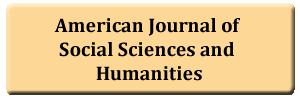Evaluation of syringes as a substitute for precision glassware in quantitative experiments in high school education
DOI:
https://doi.org/10.55284/ajel.v10i1.1271Keywords:
Accuracy, Low-cost experiments, Precision, Volumetric glassware.Abstract
This study aims to address the lack of resources in public education systems in many countries, including Brazil, by evaluating the use of plastic syringes as a cost-effective and safer alternative to traditional glassware for quantitative Chemistry experiments in high schools. The precision, accuracy, and suitability of plastic syringes as teaching aids for preparing solutions were assessed. Syringes of different volumes and brands were calibrated by determining the mass of water contained and delivered. The quality of the syringes, used as TC and TD devices, was demonstrated through the absorbances of diluted solutions from a dye stock solution. A statistical evaluation was conducted to measure the precision and accuracy of disposable plastic syringes. The study found that disposable plastic syringes with volumes of 1, 5, and 10 mL (as TD devices) and 60 mL (as TC devices) exhibited good precision and accuracy, with relative standard deviations lower than 1% and error percentages smaller than 3.5%. This indicates that plastic syringes are a viable option for performing quantitative experiments. The use of plastic syringes presents an appealing alternative for creating inexpensive and safer quantitative experiments for high school students. This approach can enhance the acquisition of knowledge in Chemistry without the high costs and potential physical risks associated with traditional glassware.



